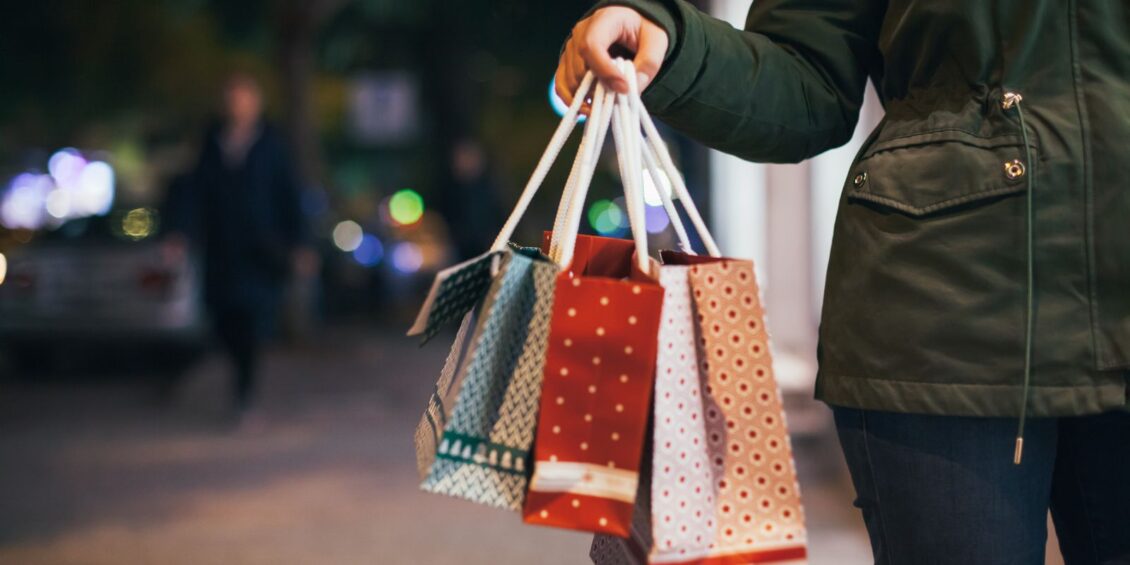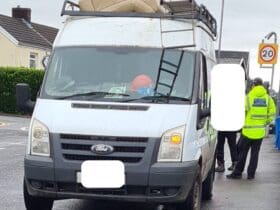The Chartered Trading Standards Institute (CTSI) is issuing a stark warning to consumers ahead of the last shopping weekend this festive period to be on their guard against unsafe products that are entering the UK and could pose serious safety risks to shoppers.
As Christmas approaches, the demand for products dramatically increases and the UK ports and borders are intercepting goods from entering into the UK, many of which would have ended up for sale on online marketplaces and then in the hands of consumers.
This year alone since January, 349,000 consumer goods were checked by Suffolk Trading Standards Imports Team at the port of Felixstowe and were refused entry into the UK because they were unsafe or non-compliant.
Some examples of products stopped, include:
- 74,565 toys
- 104,983 electrical goods
- 62,815 lighting, a significant proportion of which were fairy or Christmas lights, including outdoor lighting
- 38,248 cosmetics
- 8.965 e-scooters
- 30,898 chargers and adaptors
- 2,900 unsafe telescopic ladders
Trading Standards Officers at the Port of Felixstowe detained 500 counterfeit ‘Dyson’ hair dryers. When testing was carried out the products were found to be an electrical shock and fire risk. During testing the product overheated, did not cut off, started to smoke and both externally and internally the product started to melt. The plug was incorrectly rated and the fuse fitted did not meet the requirements of BS 1362.
Other product lines that raised cause for concern were consignments of 300 unsafe air-fryers, 900 pet heating blankets, 3000 fan heaters and 2000 unsafe wall chargers,
Some of the safety risks for consumers to be aware of include:
- Small magnets and button batteries that are easily accessed in toys and products that are appealing to children and could cause choking and harmful side effects if swallowed
- Danger of electric shock or fire risk from unsafe electrical products
- Exploding lithium-ion batteries in unsafe, DIY converted electric bikes and scooters
- Collapsing telescopic ladders presenting a serious risk of injuries
- Children’s clothing that could present strangulation risks
- Infant products that could cause suffocation
- Cosmetic products with banned ingredients and illegal medicinal substances, and skincare, haircare, makeup and nail products that haven’t been through compulsory safety assessments
Many of these dangerous products were destined for sale by third-party sellers on online marketplaces, which remains a common form of shopping amongst UK consumers due to the fast delivery and convenience of shopping from home. Many teams operate at Ports and Borders across the UK, and they provide a vital level of protection for product safety issues.
John Herriman, Chief Executive at CTSI, said: “The British public may not be aware of the critical role that Trading Standards officers play at our UK Ports and Borders, but these figures show the huge impact Trading Standards teams have in protecting the public from unsafe products which may end up being given as presents to friends and family this Christmas.”
“The data from Felixstowe, one of the UK’s largest ports, provides a frightening snapshot of the scale of the issues that we are facing from unsafe goods entering UK shores. We need more officers at ports and borders, and we need sustainable funding that makes a commitment for a minimum of 3 years.”
Clare Davies, Imports Team Leader for Suffolk Trading Standards Imports Team said “Our team works tirelessly checking goods arriving in the UK via the Port of Felixstowe, to protect the public from products which could cause them harm. The unsafe goods stopped at the border have all been detained and prevented from entering the UK and the online listings have been removed. Our safety advice is always check where the seller is based, especially when buying from an online selling platform. If the actual seller is not based in the UK, you may face heightened risks”.
Mark Gardiner, Joint Lead Officer for Product safety at CTSI, said: “Yet again, the work of Trading Standards at our ports demonstrates that such inspections are essential to keep consumers safe at Christmas, and throughout the year. Any one of these products could have caused injury, and despite this preventative action, there may still be unsafe products which are in circulation. I would urge everyone to be vigilant and if they have any suspicions about the safety of products that they have bought that they bring it to the attention of their local Trading Standards Service.”
Christine Heemskerk, Joint Lead Officer for Product safety at CTSI, said: “These findings show how important it is for consumers to be very cautious when shopping online for last minute Christmas gifts, especially via social media platforms like TikTok and Facebook. If the price is too good to be true then at best you will receive shoddy goods, or in the worst-case scenario suffer a serious injury or incident.”
The Government department responsible for product safety, The Office for Product Safety and Standards (OPSS) provides the funding for Trading Standards Officers to operate at the UK ports and borders, which provides a critical service of intercepting unsafe and non-compliant products from being on sale to consumers in the UK.
Anyone unsure about the safety of products in England and Wales can contact the Citizens Advice Consumer Helpline on 0808 223 1133. You can get consumer advice applying to Northern Ireland by calling Consumerline on 0300 123 6262. Consumers In Scotland should contact Consumer Advice Scotland by calling 0808 164 6000.









Leave a Reply
View Comments